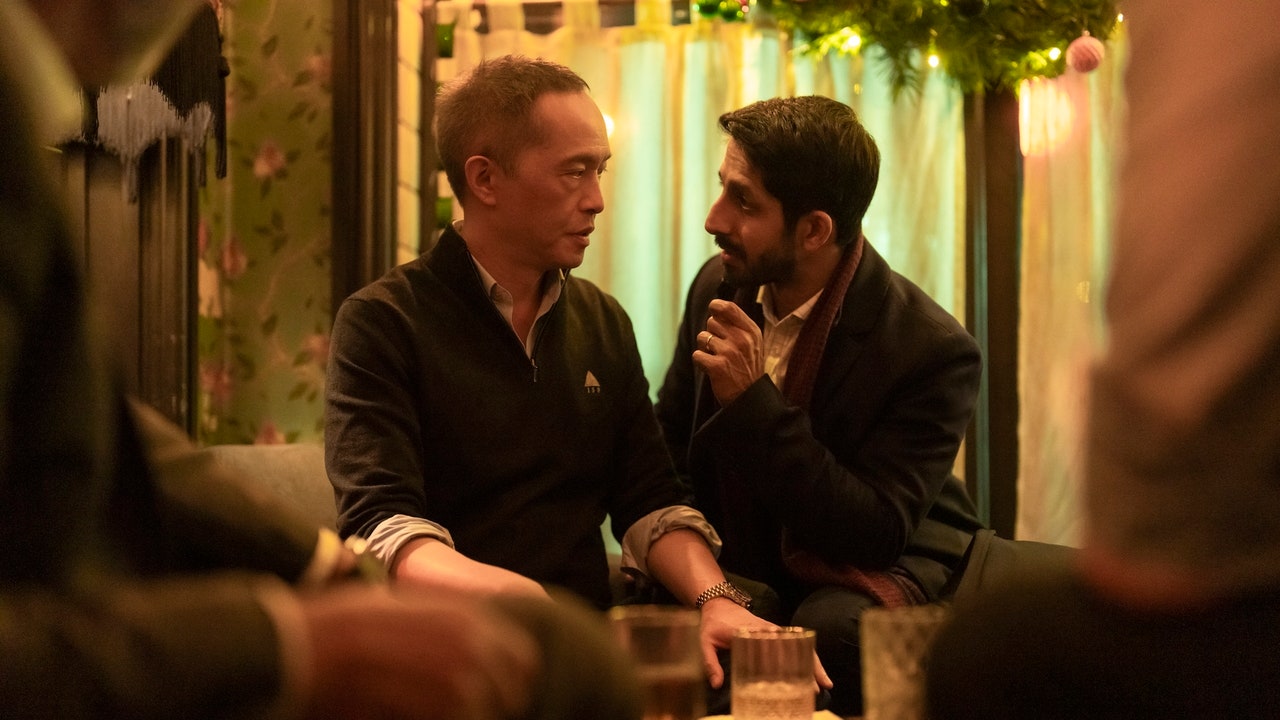Credit to her is that she trusted me, and she trusted Emily to go with it and find an honest performance. As long as you know the lines, the world you’re living in, your stakes, what’s happened before and after, and then we know the characters well enough by this point where there’s an element of trust and using your instincts to go where it needs to go. We tried it a few different ways. Some things worked, some things didn’t. But ultimately, I think it ended up being a really strong scene. Emily is great in it.
Between Eric and Robert’s “I am a man, and I’m relentless” moment at the start of the season and then Diana’s comment about how it’s easier to raise strong boys instead of fixing broken men, what do you think the show is trying to say about masculinity?
It’s a good question. As we touched on previously, the world of finance is massively male-dominated, and with that comes this expectation to be the guy who makes the most money, the guy who drives the fastest car—
“Life is printing tickets.”
Exactly. As we’ve seen from the start of season one, those pressures can get the better of someone. We saw that in the pilot with the Hari character. It’s an interesting thing to focus on and talk about because there are these huge pressures. It’s not necessarily just finance; it can sometimes be pressures on men generally, especially now. There’s so much expectation, especially in a cost-of-living crisis; there’s more on people to make money. There’s more expectation on people to provide for their families, and how you do that.
Unfortunately, in finance, they live their world at such high stakes that there’s arguably never enough. You know, I think that’s the real question: What is enough? If you’re someone who’s sweeping the streets and making minimum wage, or you’re the top of investment banking making real bank, they’re still both struggling in their own way. So the real question is: Why are they both struggling? What’s the expectation that people are creating on themselves? What’s the expectation that society is putting on people to be like, ”There’s no such thing as enough”?
You can be making 3, 4, 5, 600 grand a year, minimum, but they seem to be the ones that are the unhappiest. That’s the question to figure out, societally. What’s the drive to be happy? Is that money? Is it the people around you? I dunno, man. That’s the real question.
After the interview, Sagar followed up by email with further thoughts on Industry and masculinity:
“I think the subject of masculinity between those quotes is ultimately about one’s journey towards a version of happiness. Is Robert trying to be the type of man Eric wants him to be or who he wants to be? When Diana confronts Rishi, I think it’s her reminding him that there’s a chance here to redeem the mistakes he’s made and subvert the idea of what masculinity looks like. It doesn’t need to be the richest, most powerful man in the graveyard (where Rishi is heading towards). Rishi has the opportunity to change his narrative by being a more present, loving father, first and foremost. That will define his masculinity and, ultimately, his happiness.
This notion that his external world will fix his internal state is a struggle that defines men to this day. Money, power, more recently fame, have been the addiction that men have fed into to define who they are in society as a way to validate their position and now more than ever we’ve started to question how effective that is.
So, the real question is where we go from here. Awareness is the start. Conversations are where we live now regarding terms like toxic masculinity, but the next steps have to be action and managing expectations. Rishi begins to realize this as the hole deepens. But whether he’s ready to make those changes will really test the type of man he wants to be this season.”

